
Do you have what you need to make your garden grow?


Garden Center
Store Hours
Mon-Sat:
6:00am - 9:00pm
Sun:
8:00am - 8:00pm
Location
Popular at Your Garden Center
Spring Garden Supplies
Explore Popular Spring Plants
Garden Project Calculators
;Resize=(703,395.44))
Grass Seed Calculator
When you're ready to seed your lawn, our calculator helps you estimate the amount of grass seed you'll need to get the job done.
;Resize=(703,395.44))
Mulch Calculator
Enter your preferred material, the square footage and mulch depth of the coverage space for accurate results.
;Resize=(703,395.44))
Fencing Calculator
We'll calculate the amount of fencing you should purchase based on your property needs.
Shop Outdoor and Garden Brands
Frequently Asked Questions About Gardening
How do I know what planting zone I'm in?
Check the USDA zone map, as planting zones have shifted slightly through the years. Planting zones with higher numbers can plant earlier in the year. Choose plants that are meant for your zone and increase your odds of successful gardening.
When can I plant seeds outside in the spring?
If the soil is warm and pliable, consider planting your fruit, veggie, or flower seeds directly into your garden. This is called the "direct sow" method. Plant after the threat of frost is gone for the season, as seedlings and sprouts can't weather those conditions. You can also start your seeds indoors if you'd like. Consult your seed package for how and when to sow seeds.
Do you carry organic plants and seeds?
We offer many organic gardening options, including organic fruit seeds and veggie seeds, as well as organic flower and herb seeds that are subject to availability. We carry the organic soil to plant them in as well as the organic fertilizer to feed your plants.
Do I have to harden off my seedlings before planting them outside?
Yes, for best results, if you raised plants indoors from seeds in your own plant nursery, harden them first before you transplant them. Hardening is the process of getting them used to the great outdoors. It slows their growth until they're strong and ready to take off during a spring warm front. Hardening also makes your plants more resilient to a sudden cold snap. Speak to a garden center associate or read your seed packets for more info on caring for your tender seedlings.
How do I prepare for planting seeds or transplants outside?
Before you plant, make sure that your plant will have the right amount of sun, it's warm enough outside, and the soil is healthy. Check your seed envelope to see if it likes partial sun, shade, or full sun, as well as what time of year it should be planted. Space your plants as described on the seed envelope for best results so your plant babies have room to grow big and strong.
What are seed tapes?
If you're dealing with extremely tiny seeds or want more guidance in planting, consider seed tapes. They're biodegradable pieces of paper with tiny seeds affixed at regular intervals. Just bury the tape and water as directed. If all goes well, your perfectly spaced sprouts will pop up soon.
Garden Project Ideas
The Home Depot Garden Center at Detroit 7 Mile/Meyers
Set Up For Springtime
It's time to start thinking of spring. Sweep the gazebo and clean out the shed to prepare for sprouts poking up, warmer temperatures, and fragrant breezes. Planting seeds indoors with grow lights means you'll be ready to transplant spring annuals and young veggie plants when the frosts are through and the ground thaws. You might even want to sow seeds directly into the earth. What better way to start than by exploring your favorite local plant nursery?
Plant Hardiness Zones Explained
The first thing to learn when planting spring flowers, veggies, and other seeds is your planting zone. Every location in the U.S. and its territories is sorted into blocks by climate. Find your zone on the USDA planting zone map and learn when to plant seeds.
For example, you could plant bell pepper seedlings outdoors in mid-March in Zone 10, but not until the end of May in Zone 4. For best results, choose plants in your zone number or less. In other words, a Zone 9 garden can support plants listed as Zones 1–9. The timeframe to direct sow outdoors in your garden is often around a month later than the indoor start date. Be sure to read your seed packet for details. If you start them later than recommended, it's not ideal, but it should even out as time passes.
Gardening in Your Growing Zone
The Midwest is mostly Zones 6 and 7 throughout Indiana, Michigan, and Kentucky. You’ll find pockets of Zone 5 and stretches of Zone 4 in the Upper Peninsula. In Zones 5 and 6, the outdoor growing season doesn’t begin here until mid-March or even April, although you can plant some veggie seeds halfway through February. Warmer Zone 7 can start planting earlier, and Zone 4 much later on. Tomatoes, peppers, cucumbers, squash, and other classic garden crops will thrive in this region, and most of them can get an early jump on growing indoors before spring really moves in.
Also, check out cruciferous veggies and certain herbs if you're ready to get planting. This includes broccoli, kale, and cabbage. Greens like spinach, artichokes, and fragrant herbs, including parsley, basil, and oregano, also don't mind an early start. The main concern is waiting until the frost has passed for the season, so planting seeds outdoors as direct sow is later here compared to farther south.
Start Seeds Indoors
Save money and gain the satisfaction of growing your garden from seeds by starting them indoors in your own plant nursery. We've got all the seed starter supplies you'll need. For best results, you'll want grow lights or a warming mat to go with your seed tray or plant pots. If you're planting a larger garden, use seed trays — like the ones you see sprouts in at your Detroit 7 Mile/Meyers Garden Center — to stay organized and plant tiny soil plugs when the time comes. You can also use pots with potting soil and seed starter mix.
Measure your finger to use it as a ruler. In general, you'll plant 3–5 seeds, then press them into the soil to the depth you need with your finger. Mark where you planted the seeds with a toothpick or plant tag. That way, you'll know where your seeds should pop up, and you can be sure they're not weeds. Otherwise, it'll be a surprise when the sprouts push out of the soil.
Sprouts
Prepare your seed sprouts for outdoor life while they're still indoors. These micro-seedlings are fragile — only an inch or so high, with the tiniest seedling leaf or two — but they're resilient. Seedlings certainly don't get all this pampering in nature, so they can handle more than you think. However, don't go overboard, as your sprouts are still babies. You can even use an oscillating floor fan on low to mimic the wind and strengthen their stems.
Harden Your Seedlings
Once your seedlings have sprouted and are a few inches tall, start hardening them off. This process of gradually introducing them to the outdoors makes them stronger in the long run. Hardening means you're less likely to lose your growing garden during a sudden cold snap.
Transplant Young Plants Into Their New Homes
Carefully take your seedling out of the container. Turn it sideways or upside-down and gently squeeze the plastic to break the seal. If your transplant grew in the garden, dig deeper than you think with your garden trowel and leave plenty of room around the stem. You don't want to damage the root system. Put the plant in the new hole and make sure it's even with the surrounding soil.
Protect Your Garden With Mulch
Finish it off with compost and mulch. Compost enriches the soil so your garden can grow even better. It may help foster larger and stronger plants that bear more fruit and flowers. Mulch controls weeds and keeps your soil from drying out. Compost and mulch can be purchased in-store or created at home. The next time you're looking for "mulch near me," stop by the Garden Center to get the right amount.
Greet the Spring
Late winter into early spring is an exciting time in the world of gardening. Prepare to fertilize your lawn, plan your garden and landscaping, and browse The Home Depot nursery to find inspiration on which spring flowers to plant when the weather warms. For those without lawns, consider adding artificial grass or a pellet grill to your outdoor space. Shop for the fertilizer, soil, and seeds you need in the aisles of your Detroit 7 Mile/Meyers Garden Center, online, or on our mobile app. Let's get growing together.
Nearby Stores
Find Another Store
660 W 12 Mile Rd
Madison Heights, MI 48071
5.21 mi
Mon-Sat: 6:00am - 10:00pm
Sun: 8:00am - 8:00pm
29801 Southfield Rd
Southfield, MI 48076
6.12 mi
Mon-Sat: 6:00am - 10:00pm
Sun: 8:00am - 8:00pm
5951 Mercury Dr
Dearborn, MI 48126
7.15 mi
Mon-Sat: 6:00am - 9:00pm
Sun: 8:00am - 8:00pm

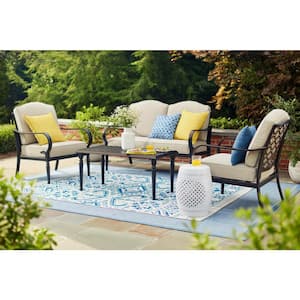
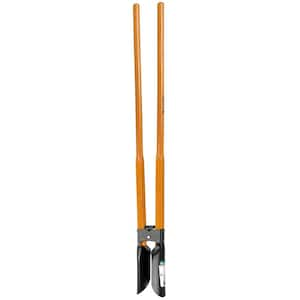
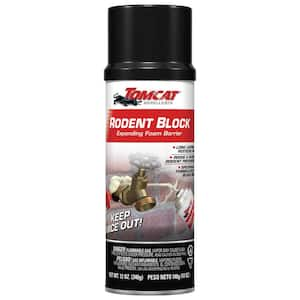
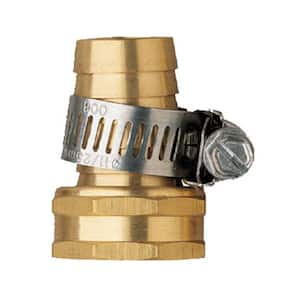
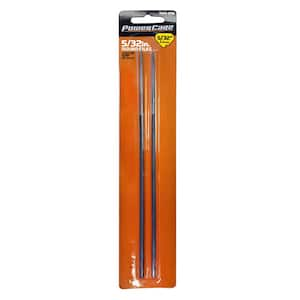
)
)
;Resize=(300,300))
)
)
/2023_P2_Rain_Barrels_Product%20Image%20(square).jpg?im=Resize=(300,300))
)
;Resize=(300,300))
)
;Resize=(300,300))
;Resize=(300,300))
;Resize=(300,300))
)
;Resize=(300,300))
/12_SOIL_B_0420_Social%20media%20(square).jpg?im=Resize=(300,300))
;Resize=(300,300))
;Resize=(300,300))
)
)
)
;Resize=(300,300))
;Resize=(300,300))
;Resize=(300,300))
;Resize=(300,300))
;Resize=(300,300))
)
;Resize=(300,300))
/18Patio_Camden_Seagrass_5pcSeating_Planters_302468736_DTL3_L_Social%20media%20(square).jpg?im=Resize=(300,300))
;Resize=(300,300))
;Resize=(300,300))
;Resize=(300,300))
;Resize=(300,300))
;Resize=(300,300))
)
)
)
.jpeg?im=Crop,rect=(363.69230769230774,1.2307692307692308,958.7692307692308,958.7692307692308);Resize=(300,300))
;Resize=(300,300))
;Resize=(300,300))
;Resize=(300,300))
)
)
;Resize=(300,300))
;Resize=(300,300))
;Resize=(300,300))
)
;Resize=(300,300))
)
)
)
)
;Resize=(300,300))
;Resize=(300,300))
)
;Resize=(300,300))
)
)
/Capello_Spring_Mum_10in_Social%20media%20(square).jpg?im=Resize=(300,300))
;Resize=(300,300))
)
)
;Resize=(300,300))
;Resize=(300,300))
)
)
)
)
)
;Resize=(300,300))
;Resize=(300,300))
;Resize=(300,300))











































